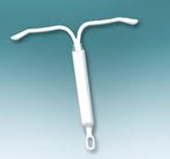Free Birth Control May Curb Abortions: StudyAccess to IUDs, implants helped reduce unintended pregnancies, researchers say.
THURSDAY, Oct. 4 (HealthDay News) -- Providing girls and women with free birth control may lead to a steep drop in abortions, a St. Louis study suggests. Researchers looked at more than 9,000 girls and women, aged 14 to 45, enrolled in the Contraceptive Choice Project in St. Louis between 2007 and 2011. The participants were at risk for unintended pregnancy and were given their choice of birth control, including intrauterine devices (IUDs) and implants, vaginal rings, and birth control pills and patches. About 75 percent of the girls and women chose IUDs or implants. These methods are highly effective and long-lasting but have high up-front costs that sometimes aren't covered by health insurance. From 2008 to 2010, annual abortion rates among the study participants ranged from 4.4 to 7.5 per 1,000 women, which is 62 percent to 78 percent lower than the 2008 national rate of 19.6 per 1,000, said the researchers at the Washington University School of Medicine in St. Louis. The abortion rates among the girls and women in the study were much lower than the rates in St. Louis city and county, which ranged from 13.4 to 17 per 1,000 women between 2008 and 2010. "The impact of providing no-cost birth control was far greater than we expected in terms of unintended pregnancies," study lead author Dr. Jeff Peipert, professor of obstetrics and gynecology, said in a university news release. "We think improving access to birth control, particularly IUDs and implants, coupled with education on the most effective methods has the potential to significantly decrease the number of unintended pregnancies and abortions in this country." The study was published online Oct. 4 in the journal Obstetrics & Gynecology. About half of all pregnancies in the United States are unplanned, a rate far higher than in other developed countries. About half of these unintended pregnancies occur from not using birth control and the other half from incorrect or irregular use of contraception. "Unintended pregnancy remains a major health problem in the United States, with higher proportions among teenagers and women with less education and lower economic status," Peipert said. "The results of this study demonstrate that we can reduce the rate of unintended pregnancy and this is key to reducing abortions in this country." Although the research noted an association between free contraceptives and reduced abortion rates, it did not establish a direct cause-and-effect relationship. More information The U.S. Office on Women's Health outlines the different types of birth control. (SOURCE: Washington University School of Medicine in St. Louis, news release, Oct. 4, 2012) Copyright © 2012
HealthDay. HealthDayNews articles are derived from various sources and do not reflect federal policy. healthfinder.gov does not endorse opinions, products, or services that may appear in news stories. For more information on health topics in the news, visit Health News on healthfinder.gov. |